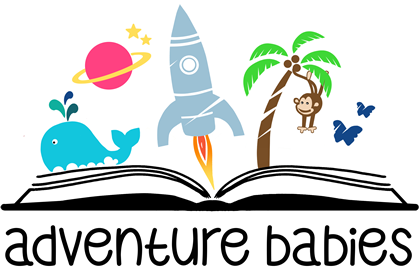The Science Behind Baby Sleep and Brain Growth (AKA why your baby naps like a cat on espresso, and what it’s doing for their brain) Let’s be honest—if you’ve had a baby for more than five minutes, you’ve Googled “why won’t my baby sleep?!” at 3:14am while gently weeping into a cold cup of tea. Sleep, or the maddening lack of it, becomes an obsession in the early months of parenting. But here’s the kicker: sleep isn’t just for your sanity (although yes, please let it be for your sanity). Baby sleep and brain development are tightly connected—because while your baby looks peaceful in dreamland, their brain is basically throwing a developmental rave.
What’s Really Happening During Sleep?
Baby sleep and brain development: the behind-the-scenes action
When your baby is snoozing (finally), their brain is anything but lazy. In fact, baby brains are working harder than a group of mums trying to assemble a flat-pack playpen without arguing.
During sleep, babies’ brains are:
🔧 Building neural connections – Think of it like brain scaffolding. Sleep helps link up all the bits of the brain so they can eventually walk, talk, and hurl peas at your face with surprising precision.
🧠 Processing learning – Whether your baby spent the day babbling at a mirror or staring at a giraffe puppet in baby class (hi, that’s us), sleep helps lock that experience into memory.
📈 Producing growth hormone – Yep, actual growth spurts often start in sleep. That explains why their babygrow is suddenly cutting off circulation to their ankles by morning.
Why do babies need so much sleep?
Newborns typically rack up 14–17 hours of sleep in 24 hours. That sounds dreamy until you realise it’s scattered into chaotic little blobs across day and night like a deranged nap jigsaw puzzle. This fragmented sleep is actually pretty normal. Their tiny circadian rhythms (aka body clocks) haven’t read the memo on “night is for sleeping.” They’re still learning.
And because their brains are doing so much behind the scenes—developing sensory processing, memory, emotional regulation, and motor skills—they need way more sleep than adults to keep up with the cognitive chaos.
OK, but why do they wake up so much?
Short answer: survival.
Longer answer: babies evolved to wake frequently because it helped keep them safe. Waking to feed, check in with you, or simply because their sock is falling off their foot in a disturbing way—that’s all part of the baby deal. Frustrating? Deeply. But also developmentally normal.
Sleep = Brain Gains: Connecting Baby Sleep and Brain Development
Here’s the mind-blowing bit. Sleep doesn’t just support brain growth—it actually helps babies practice their new skills.
Ever noticed your baby rolling around like a feral yoga ball in their sleep? That’s their brain running drills. Baby sleep and brain development go hand in hand, with sleep acting like the glue that holds all that daily learning together.
Today they flailed a spoon at their ear. Tomorrow, they might (maybe) get it into their mouth. Progress!
So how can we support baby sleep and brain growth (without losing our own minds)?
Some realistic ideas:
🧘 Routine helps – Predictability gives their brain a sense of security. Bath, boob/bottle, books, bed—it doesn’t have to be Pinterest-perfect.
🌞 Daylight exposure – Natural light helps regulate those emerging circadian rhythms. Go for a walk or sit near a window. Bonus: you might feel slightly more human.
💤 Safe, responsive sleep – Responding to their needs builds attachment, which supports emotional development. And no, you’re not “spoiling” them. You’re helping their brain grow.
TL;DR – What you should take away
Baby sleep isn’t random chaos (even though it feels like it).
It plays a key role in memory, learning, emotional development, and physical growth.
The odd all-nighter doesn’t mean you’re failing—your baby’s brain is just doing overtime.
And eventually, sleep does improve. Not because of a perfect trick or sleep training algorithm. Just biology, time, and probably a fair bit of caffeine.
Remember: You’re not just keeping a baby alive. You’re helping build a brain. And that’s pretty phenomenal—whether you got three hours of sleep last night or survived on vibes and dry toast.








